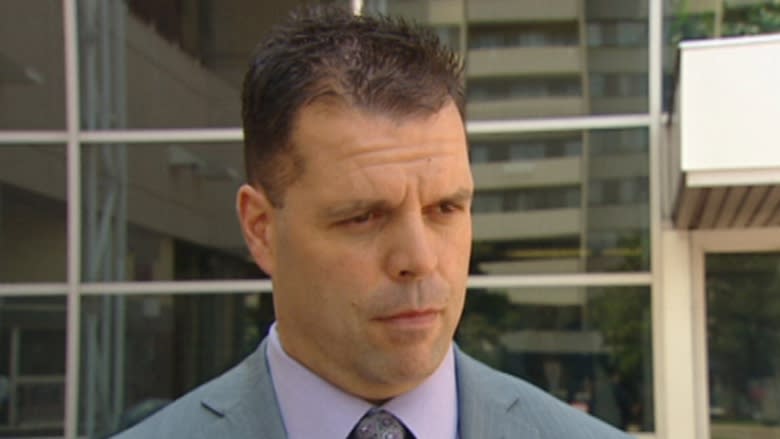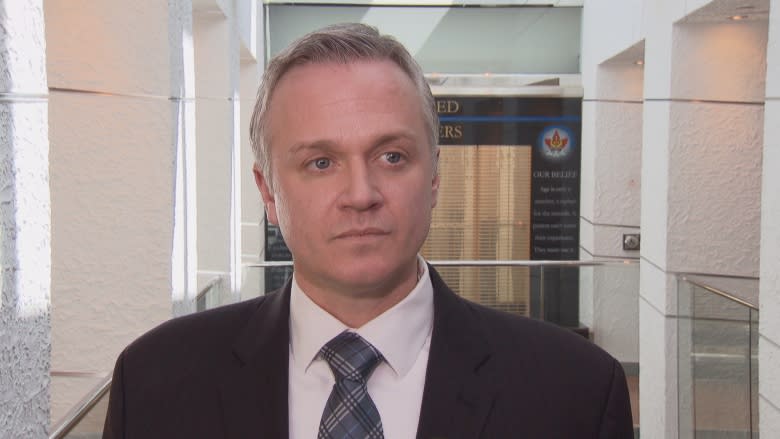Criminals aren't targeting Bells Corners, police chief says
Ottawa police Chief Charles Bordeleau is reassuring residents of Bells Corners that criminals are not setting up shop in their neighbourhood despite a spate of violence there this month.
Bordeleau is also refuting a claim by the head of the city's police union that a new policing model and lower staffing levels are behind the spike in crime.
Bordeleau told CBC Radio's Ottawa Morning Tuesday that while recent shootings happened in Bells Corners, gang members and drug traffickers aren't specifically targeting certain neighbourhoods.
"They're not targeting Bells Corners, they haven't set up shop in that neighbourhood. What they're actually doing is they're following each other and they're using technology to know where their competitors are, and taking an opportunity where they find them and then they retaliate against them by shooting at them," Bordeleau said.
"I'm not going to go into specific details but our investigations have led us to believe that these individuals are getting more sophisticated. It's a very competitive market, the drug trafficking trade, and they are very aware of where their competitors are and they want to eliminate them."
And over the past few years, "as part of a disturbing trend," more people have access to and are choosing to use firearms, he said.
Friends, relatives of criminals have valuable info
Bordeleau also echoed Insp. Mark Patterson's comments from earlier this week, encouraging friends and relatives of gang members and drug traffickers to step up and share information with police or Crime Stoppers.
"We encourage those individuals, who very well know what type of activity [criminals] are engaged in, to call the police service. And if they fear retaliation or they want to do it anonymously, they can go through Crime Stoppers. But we won't be able to solve these without the support and help from the community," Bordeleau said.
"One of the challenges that we have ... is a lack of co-operation or the lack of information that we have from the victims that are involved."
'Concerted effort' to ID suspects
After shootings, police increase their patrol presence in affected areas to give people who might know something a chance to come forward, and also to comfort residents, Bordeleau said. Meanwhile, multiple units are working to solve the shootings, he added.
"Our organization right now is focused on identifying and bringing these individuals accountable to what they are doing. From our surveillance teams to our drug units to our guns and gangs unit to our patrol officers, there's a concerted effort to identify these individuals and make sure that when they do things, they are brought to court."
Last fall, Bordeleau recalled, a "fairly significant" Ottawa police investigation called Project Sabotage resulted in more than 200 criminal charges against 16 people, and the seizure of 24 firearms.
"And those individuals are before the courts now. However, most of them are back out in the community, plying their trade."
Fires back at union leader
Matt Skof, the president of the Ottawa Police Association, said earlier this week that the rash of shootings points to a deeper problem with how the Ottawa police force is structured.
In 2017, Ottawa police shifted more than 100 officers from specialized units to frontline patrol duty. Police brass said the restructuring would allow the force to focus on emergency response, but critics like Skof say it has distanced police officers from the communities they serve.
Officers' shifts are dominated by the 911 calls for service that come in, Skof said, leaving them no time to do the kind of proactive police work that might prevent shootings from happening in the first place.
Bordeleau called Skof's comments "absolutely false."
"To hear him level those accusations, that is wrong. We have more police officers out there on the streets, doing work in the community, responding to calls for service, than we did under the old model. So to link this to a change in our service delivery model is simply wrong," Bordeleau said.
Asked why Skof would say something like that if it wasn't true, Bordeleau said he wouldn't comment.
"He's the president of the union. I'm not going to get into motives around what it is; it's not helpful. What we are focused on as a police service is to be responsive to community concerns, to identify these individuals ... and to charge them when we can and arrest them and put them behind bars where these individuals belong. That's our focus in investigating and preventing crime."
Later Tuesday, Skof called on Bordeleau to better address patrol and proactive policing issues.



